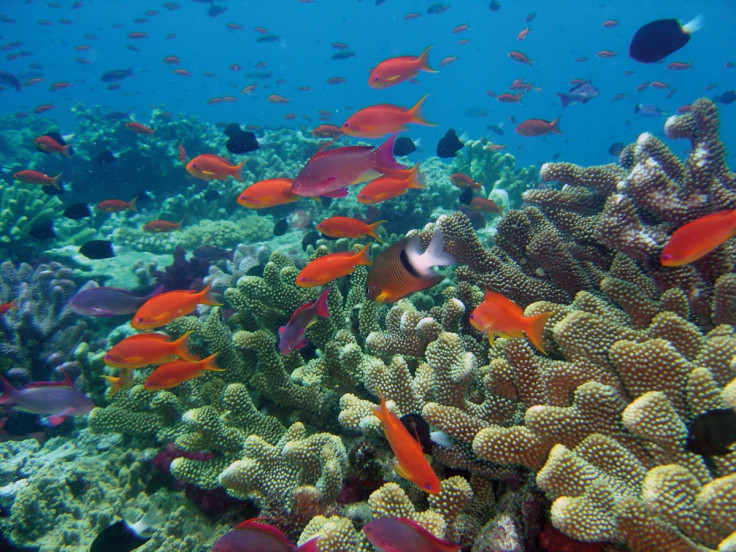Climate change: Cloudy oceans could give coral reefs the best protection

Turbid, cloudy water may be the best place for coral reefs to try and survive climate change, say researchers. Studies show that reefs in water which is not crystal clear will suffer the least damaging effects from climate change.
The researchers suggested that coral reefs in turbid waters – waters which are particularly cloudy or murky – could provide a refuge from the rapidly warming ocean temperatures. Increased solar radiance has been found to increase the temperature of the water, and if the light is 'blocked' from entering by turbid waters, the temperature won't increase as quickly or as much.
"We've identified refuges from climate change, where naturally turbid environments will reduce the temperature stress predicted for 2100," said researcher Chris Cacciaoaglia. Rob van Woesik, who worked with Cacciaoaglia, added: "Naturally turbid environments may be among the few places where coral species survive in a warmer climate."
Both researchers, from the Florida Institute of Technology, used a combination of statistical analysis and modelling to project the distribution of 12 species of coral in 2100. They used current estimations for global warming in the Indian and Pacific Ocean, in areas which have high turbidity due to tidal changes.
When they compared the models between turbid and non-turbid waters, they found that temperature-related coral bleaching – loss of algae from inside the coral, which can lead to coral death – will be reduced by 9% in turbid shallow reef habitats.
The report, published in Global Change Biology, says: "Protecting the turbid near-shore refuges identified in this study (particularly in the northwestern Hawaiian Islands, the northern Philippines, the Ryukya Islands, eastern Vietnam, western and eastern Australia, New Caledonia, the northern Red Sea, and the Arabian Gulf) should become part of a judicious global strategy for reef-coral persistence under climate change."
Previous studies have shown that reducing solar irradiance can reduce stress from coral bleaching, and that reefs with the lowest amount of irradiance tend to be near the shore. However, this is the first study that uses models based on climate change projections.
© Copyright IBTimes 2025. All rights reserved.






















